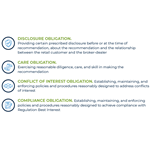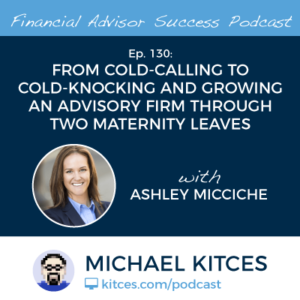 Welcome back to the 131st episode of Financial Advisor Success Podcast!
Welcome back to the 131st episode of Financial Advisor Success Podcast!
My guest on today's podcast is Dan Goldie. Dan is the former president of Dan Goldie Financial Services, an independent RIA based in the San Francisco area that oversees nearly 900 million of assets under management for 275 affluent clients. What's unique about Dan though is that he built his firm up to nearly a billion of assets under management entirely as a solo advisor without even a single full-time administrative staff member. Relying instead on an external TAMP to provide all of his back office support so that he can fully and solely focus on serving his clients and building his practice.
In this episode, we talk about the way that Dan has structured his advisory business, what exactly he does for his 275 clients upfront and on an ongoing basis as a solo advisor, his approach of customizing everything he does to the needs of the client, and why Dan has been able to be so successful and productive even without systematizing what he does for clients because he customizes in a way that not only does more for clients who need more, but also saves time by doing less for clients who want and need less.
We also talk about how Dan built his business primarily through referrals after an initial stint in seminar marketing, the way he's been able to continuously keep time available to continue marketing and meeting with prospects with his relentless focus on improving his own personal efficiency and productivity. How thanks to the ongoing improvements in technology, he still sees even more opportunity to be successful as a solo advisor today, despite all the industry naysayers suggesting that consolidation is inevitable. And why despite his success as a solo advisor, he decided earlier this year, to take some risk off the table and create more continuity's first clients by selling the firm to Buckingham Strategic Wealth.
And be certain to listen to the end where Dan shares how the key to his business and financial success wasn't because outsourcing to a TAMP was necessarily more cost-effective than hiring and developing his own team, although it may have been, but instead because it was his strategy to stay disciplined and hyperfocused on spending as much of his time as possible with this clients and not on the any of the other demands of the business that consumes so much time for most other advisors.
So whether you're interested in how a former professional tennis player was able to grow his solo practice to just shy of $1B in AUM, how he has managed to focus solely on serving his clients by outsourcing everything else, or some sage advice from someone who's been in the business for 28 years, then we hope you enjoy this episode of the Financial Advisor Success podcast.









 Welcome back to the 130th episode of Financial Advisor Success Podcast!
Welcome back to the 130th episode of Financial Advisor Success Podcast!
